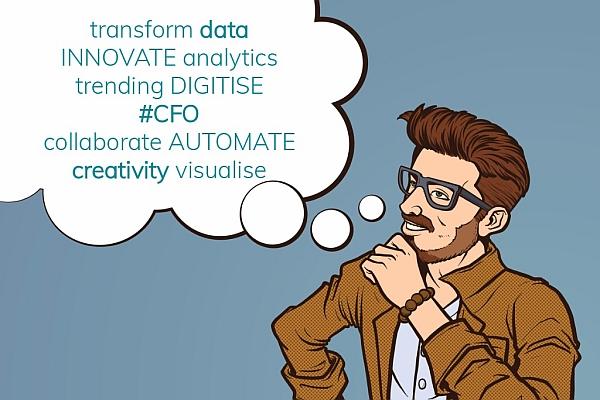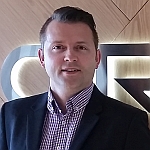Published on the 13/10/2017 | Written by Wayne Goodall, Senior Director of Cloud Applications Development at Oracle

The modern CFO role is rapidly transforming. It’s defined by change, and the driving force behind that change is innovation as a generational shift unfolds…
Traditionally, the CFO was primarily an accounting role – responsible for oversight of financial data and reporting to the board. Increasingly, the role is morphing into a strategic role, one where the CFO is a business partner across the organisation, leveraging data, looking for new ways to get better performance insights, predicting where the market is going, and looking for opportunities to drive change. Simply put, it’s the CFO’s job to find and measure ways to innovate wherever possible. Take a look at mature businesses that have been around for 20 years or so. What do you notice? What I notice is change. Most conspicuously, companies have changed their products and their services, but more importantly, they’ve changed their mindset. That traditional business model, where you say “We’ve got a great product, we’re a leader in the market, we’ll just keep earning our share”? That’s changed. The simple fact is, a name and a brand can exist for a while, but if you don’t adapt and change, you lose out to your competitors. Someone will come along, cheaper, faster, more efficient, more agile and innovative and with better technology, and growth will evaporate into decline. And all of that is happening faster and further than ever before. The CFO has had to adapt from the kind of thinking that says, “This is the report that says where we’re at and you can use this report to answer that question”. Now, the challenge is to come up with the questions themselves: “How do we analyse this data more effectively? How do we stimulate and measure innovation internally? How can we use market data to predict the future and how we’ll be placed within it?” The CFO’s ability to create value is reliant not just on data but on the tools at their disposal. Tools change all the time of course, but the critical aspect is that as they do people are freed to focus not on the data, but on the business. These changing tools are empowering CFO’s and that’s especially observable as the demographics for that role evolve. As more millennials move into the role, the role itself is changing. Millennials more than any other generation of working age, have a singular trust in technology. They have greater insight into what’s happening with that technology. These ‘new blood’ CFOs are encouraging the uptake of smart new tools – machine learning, robotics and a host of other innovations – all with a quest to drive efficiency. Millennial CFOs are encouraging the move away from inefficient, human-centred processes that eat up both time and effort, and insisting that we spend time doing what we should: making decisions based on good information. This is a mindset change, a new focus on insight and efficiency to drive the decision-making process. We see this mind-shift in our customers too. When people adopt services, their mindset begins to change as well. They begin to realise, “I’m not managing a system, I’m using a system to manage my business”. That’s a profound realisation for a lot of people, but many millennials understand it instinctively. They trust technology more than their predecessors, and it’s often this generation that is urging people to really think about how innovation can drive their businesses forward. The rewards can be enormous, but it starts with a mindset. Inside the Oracle organisation, everybody – from day one onward – understands the fact that change is inevitable and if you don’t change, you don’t last very long. You have to be part of the change cycle, the innovation cycle, and part of the feedback process. We’re all stakeholders and if we see the opportunity for efficiency gains then we quickly deploy the right tools to make those efficiency changes happen. That goes for me too. My role is to look at the market, look at the customer base and say to development: “These are the things that we could actually benefit from, here’s what the industry is saying, and here’s what the customer base is saying. We need to put these features into the release cycle for our applications”. Things like AI, machine learning, this stuff is real now and it’s still evolving, because the wave is endless with innovation. Every day it becomes less about managing software, and more about using it to do our jobs more efficiently and effectively. And the great thing is that the tools just keep getting better and better. This is the first article in a series looking at the modern CFO. Wayne Goodall is Oracle’s Senior Director of Cloud Applications Development in JAPAC, covering ERP & EPM products. In this role, he helps implement and empower large business transformations across the region.
The second article is The data-driven advantage for CFOs
The third article is The Modern CFO: Using the cloud to deliver true business value





























